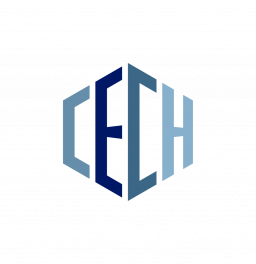Portuguese Food Culture and Heritage
Classes: 02.01.2023 - 04.02.2023
Scientific Domain: Humanities
Professor responsible
Carmen Soares • University of Coimbra, Faculty of Arts and Humanities, CECH
Other Professors
Maria José Araújo • Investigadora do CECH, Universidade de Coimbra
Maria Helena da Cruz Coelho • Investigadora do CHSC, Universidade de Coimbra
Ana Maria Proserpio • Investigadora do CECH, Universidade de Coimbra
João Pedro Gomes • Investigador do CECH, Universidade de Coimbra
Type of teaching: b-learning
Language of instruction: Portuguese
Objectives of the curricular unit and skills to be developed by the student
To improve the knowledge and study of food and gastronomy as determinant factors of culture and heritage.
To understand the concept of Intangible Cultural Heritage.
To identify good practices for safeguarding the Intangible Cultural Heritage
To understand the concepts of “tradition” and “heritage” applied to food.
To distinguish recognise the differences and intersections of the concepts of “food”, “culinary”, “cuisine” and “gastronomy”.
To develop technical competences in the research and registration of the Portuguese food heritage.
To know, identify and dominate operative instruments for safeguarding the intangible cultural heritage, in particular the food heritage.
Syllabus
1. Operative concepts: culture, tradition, heritage and patrimonialisation; food, cooking, cuisine and gastronomy.
2. Construction of the cuisine of the territories in Portugal
2.1 Contribution of cookbooks: local cuisines, regional and national
2.2 Contribution of festivals and museums.
3. Portuguese food heritage: safeguard and promotion processes
3.1 Inventory of the Portuguese intangible food cultural heritage
3.2 Case studies of the Portuguese Food Heritage
3.2.1 Bread
3.2.2 Codfish
3.2.3 Confectionary
3.2.4 The chestnut
3.3 Family Food Heritage
Teaching methodologies and evaluation
The sessions will have a theoretical and practical character, calling for the active participation of students, encouraging critical analysis and research for each of the themes of the programme.
The evaluation will be carried out through individual and/or group works (40%) and a final written work and presentation (60%).
Main bibliography
Bessière, J. (2012), “Patrimoine alimentaire, patrimonialisation”, in Dictionnaire des cultures alimentaires, Paris, 978-985.
Cabral, C. B. (2011), Património Cultural Imaterial: Convenção da Unesco e seus Contextos. Lisboa.
Contreras, J. (2019), “La alimentación contemporánea entre la globalización y la patrimonialización”, Boletín de Antropología 34.58, 30-55.
Kit de recolha de PCI (2011), Instituto dos Museus e da Conservação [http://www.matrizpci.dgpc.pt/MatrizPCI.Web/AreaJovens/Kit]
Montanari, M. (2008), Comida como cultura. São Paulo 2008.
Notaker, H. (2012), “Printed Cookbooks: Food History, Book History, and Literature”, Food&History 10.2: 131-159.
Cruz Coelho, M. H.; Soares, C. (2018), “Um doce e nutritivo fruto: a castanha na história da alimentação e da gastronomia portuguesas”, in C. Soares, C. Gomes Ribeiro (eds.), Mesas Luso-brasileiras: Alimentação, Saúde & Cultura. vol. 2. Coimbra-Curitiba, 103-176.
Soares, C., Cruz Coelho, M. H. (2021), “Usos e virtudes do alimento primordial: o pão, mantimento e medicamento preventivo. Matriz clássica e fontes escritas portuguesas”, in C. Soares, A. J. Silveira, Laurioux, B. (eds.), Mesa dos Sentidos & Sentidos da Mesa – vol. I. Coimbra e Curitiba, 131-160.
Soares, C. (ed.) (2018), BiblioAlimentaria: Alimentação, Saúde e Sociabilidade à Mesa no acervo das Bibliotecas da Universidade de Coimbra. Coimbra.
Soares, C. (2014), “Pão e Vinho sobre a mesa: um “clássico” da alimentação Portuguesa”, in C. Soares, I. C. Macedo (eds.), Estudos sobre o Património Alimentar Luso-brasileiro. Coimbra, 17-50.

